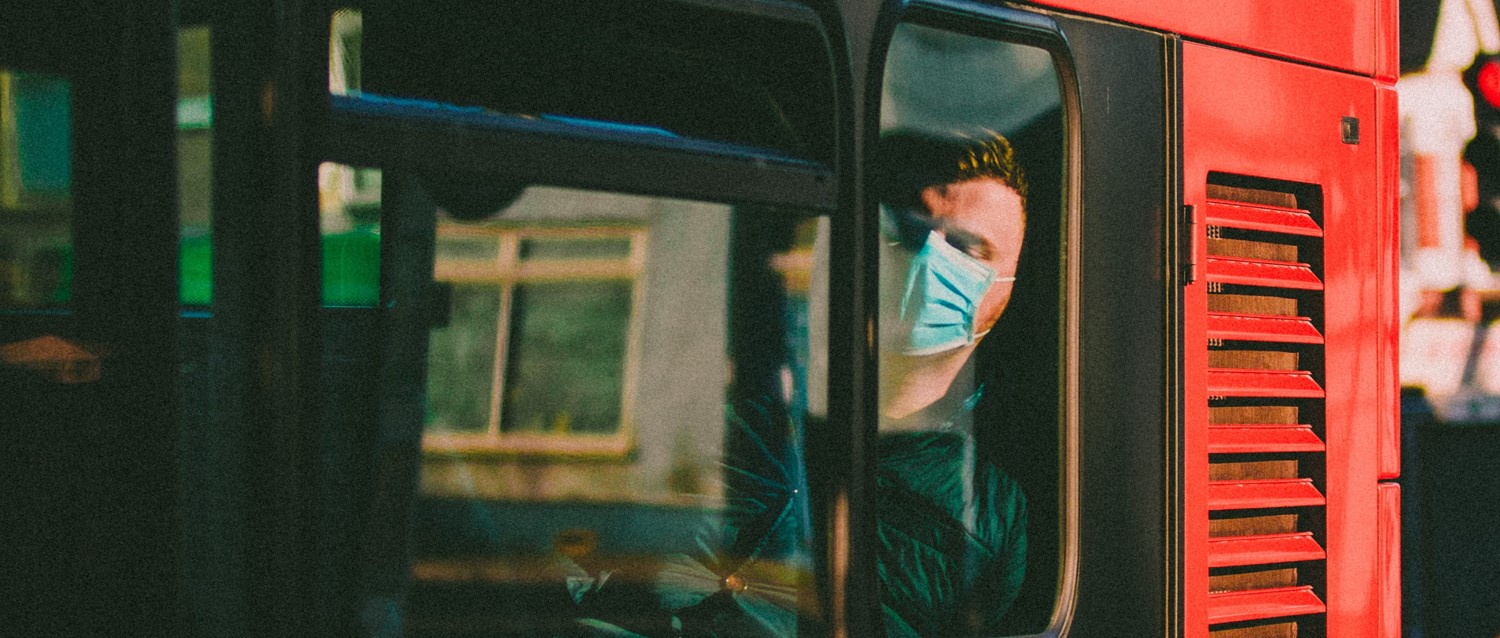
COVID-19: do you need to worry about coronavirus?
Peer reviewed by Dr Sarah Jarvis MBE, FRCGPLast updated by Milly EvansLast updated 27 Jan 2020
Meets Patient’s editorial guidelines
- DownloadDownload
- Share
- Language
- Discussion
- Audio Version
We now know more about the new coronavirus emerging out of Wuhan, China. As the virus spreads and cases are discovered in other countries, do people in the UK need to worry about the virus?
In this article:
Video picks for General information
This feature is now out of date. You can find our latest features and advice on coronavirus and COVID-19 in our coronavirus hub.
In December 2019, a new type of coronavirus was discovered. It originated at a fish and live animal market in the city of Wuhan, China. It has since been found to be spread through human contact, as well as by contact with infected animals.
Coronaviruses are a group of viruses which, as a group, are common. One type of coronavirus causes the common cold, while another was responsible for the SARS epidemic which claimed hundreds of lives in the early 2000s. This form of the virus has been officially named SARS-CoV-2, and the disease it causes named Covid-19.
China is attempting to contain the virus and minimise its spread by putting Wuhan on lockdown. Wuhan and several other Chinese cities have enforced travel bans, with some also cancelling Chinese New Year celebrations and extending school holidays to minimise the risk to the public.
Update: 6th February
Foreign Office travel advice
The Foreign Office has issued new guidance, warning Britons to avoid travel to anywhere in mainland China unless their trip is essential. This recommendation does not currently apply to travel to Hong Kong or Macao. The guidance says that if you are already in China, you should leave if you are able.
They have already warned that nobody should travel to Hubei province (of which Wuhan is the capital city). They have been carrying out emergency evacuations to bring UK citizens back to the UK. Those citizens are being quarantined for two weeks upon their return so that anyone carrying the virus can be identified.
Travelling to the aforementioned areas against Foreign Office advice means that any travel insurance may not be valid. Some airlines have suspended flights to and from China.
Continue reading below
How many people have been affected?
As of 11th February, more than 1000 people have died from the new coronavirus and over 40,000 cases have been confirmed. As some people only experience very mild symptoms, it's likely that the real numbers are far higher.
Researchers at the University of Lancaster, who have studied the way the virus spreads, estimate that only 1 in 20 people affected have had the disease confirmed. By their reckoning, 11,000 people were infected in the first three weeks of January alone.
A study published in The Lancet estimates that nearly 76,000 people may have been infected between 1st December 2019 and 25th January 2020.
Eight cases have been confirmed in the UK. All eight cases have been quarantined, as have those who were evacuated from Wuhan on 30th January. The government have announced extended legal powers granting them the ability to impose restrictions on anyone that healthcare professionals believe is at risk of spreading the virus.
What's the risk in the UK?
Back to contentsPublic Health England says that the risk to the UK population is moderate. This has been raised from low as the situation continues to evolve.
The World Health Organization has declared Covid-19 to be an international public health emergency, as it did with swine flu and Ebola. It is producing daily reports on the spread of the virus.
Continue reading below
What should I do if I think I have the coronavirus?
Back to contentsFrom what has been seen so far, the new coronavirus affects the respiratory tract, causing flu-like symptoms and problems with breathing. In some people the virus has been very mild and indistinguishable from the common cold. However, some people have developed serious complications like pneumonia.
What are the symptoms?
Symptoms include:
Fever.
Dry cough.
Difficulty breathing.
Runny nose and sore throat.
Loss of appetite.
Sweating and shivering.
Headaches and muscle aches.
Pneumonia symptoms - increasing cough and shortness of breath, sometimes with blood-stained or rust-coloured sputum.
Who is at risk?
You are at increased risk and should take action now if:
You have been to mainland China, Thailand, Japan, Republic of Korea, Hong Kong, Taiwan, Singapore, Malaysia or Macau and have symptoms of cough or fever or shortness of breath within 2 weeks of returning; or
You have been in contact with someone with a confirmed case of coronavirus and develop symptoms of cough or fever or shortness of breath.
Around 1 in 4 cases are thought to be severe. The risk of developing a serious infection or dying from the virus is higher among those with a weaker immune system, including older people and those who are already unwell or have a long-term health condition.
If you experience symptoms of the new coronavirus and are in a risk group, you should speak over the phone to a healthcare professional or 111 immediately. They'll advise you on what to do next.
How do I get help if I think I might be affected?
According to Public Health England's guidance, if either of the above apply to you:
You should stay indoors and avoid contact with other people for 14 days after returning from Wuhan - even if you don't have symptoms.
This means not going to work, school or public areas, and arranging for friends, family or delivery services to run your errands and provide you with food/medicine.
You should not attend your GP practice - they are not equipped to handle cases of this coronavirus as you will need specialist testing and care.
In England, Scotland and Wales ring 111 (or your GP if in Northern Ireland). Make sure you let them know if you're in one of the at-risk groups above - even if you don't have symptoms.
When you ring 111, let them know about your recent travel, and your symptoms if you have them.
Follow their advice and do not leave your home until you have been given advice by a clinician.
You should not use public transport or taxis to get to the hospital if you're advised to attend.
You will need to be put into isolation away from other patients and staff.
When you arrive, you will need to expect the team treating you to wear protective equipment until the infection has been ruled out or confirmed.
Although, as yet, there is no vaccine or treatment available, the UK is one of the first countries outside of China to have access to a prototype laboratory test for the new coronavirus. The number of UK laboratories with access to the diagnostic test has increased from one to twelve, increasing our testing capabilities.
If a clinician suspects Covid-19, they will take nose, throat and deeper respiratory samples and send them to one of the twelve laboratories. They will provide a result the same day.
Reducing your risk
Back to contentsWhilst the risk to the general population in the UK is relatively low, taking measures to protect yourself from disease is always a good idea. Scientists estimate that each infected person is passing it on to 1.4 to 2.5 people.
It seems likely that this coronavirus is spread through close contact including close breathing or talking to an infected person. Like flu, the virus can be transmitted before symptoms even appear, making it harder to curb the spread. The actions of the Chinese government are now crucial in limiting the number of infections worldwide.
Wearing face masks will not do much to prevent you contracting the virus. There is no risk of catching coronavirus from animals in the UK, nor from eating Chinese food.
You can reduce your personal risk of contracting the virus by:
Washing your hands properly and frequently.
Practising good personal hygiene like covering your mouth and nose when you sneeze.
Avoiding, as much as possible, travel to at-risk areas.
Patient picks for General information

COVID-19
How to contribute to COVID-19 research
COVID-19 has been such a large part of our lives for so long that it's easy to forget it's a very new virus, and there is still a great deal to learn about it. To do that, the science community relies on members of the public - those who have had coronavirus and those who haven't - to sign up as research volunteers.
by Allie Anderson

COVID-19
How to reduce your risk of coronavirus on public transport
As lockdown restrictions continue to be eased across the country, more and more people are using public transport again. But for many this is an anxious experience, especially after so many months of avoiding tubes, trains and buses.
by Andrea Downey
Continue reading below
Article history
The information on this page is peer reviewed by qualified clinicians.
27 Jan 2020 | Latest version

Ask, share, connect.
Browse discussions, ask questions, and share experiences across hundreds of health topics.

Feeling unwell?
Assess your symptoms online for free
Sign up to the Patient newsletter
Your weekly dose of clear, trustworthy health advice - written to help you feel informed, confident and in control.
By subscribing you accept our Privacy Policy. You can unsubscribe at any time. We never sell your data.